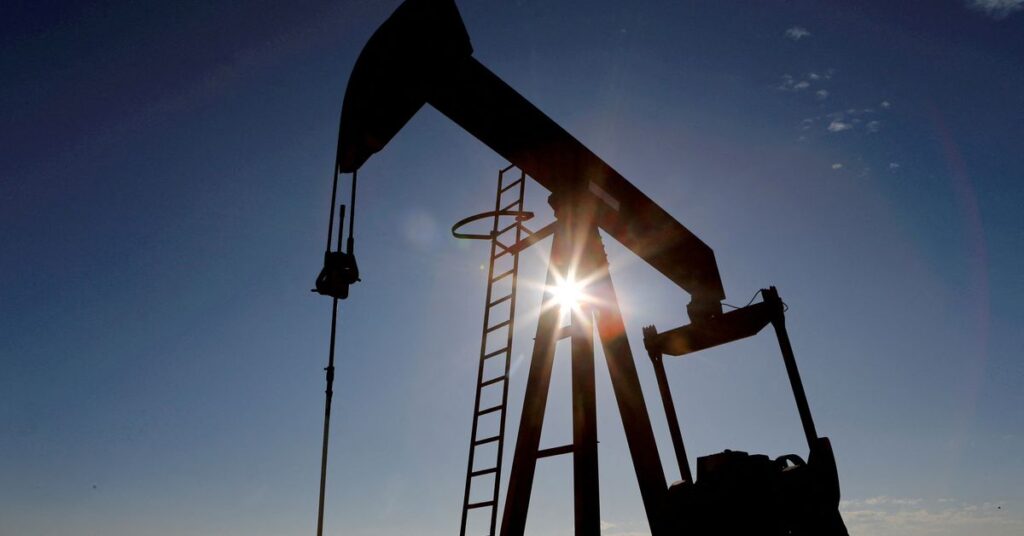LONDON, April 13 (Reuters) – Oil prices edged lower on Thursday, after scaling multi-month high levels in the previous session, weighed by fears of a looming recession in the United States and warnings from the OPEC group about hits to summer oil demand.
Brent crude fell 85 cents, or 1%, to $86.48 a barrel by at 1:41 p.m. EDT (1741 GMT). U.S. West Texas Intermediate (WTI) slipped 73 cents, or 0.9%, to $82.53 a barrel.
Brent and WTI rose 2% on Wednesday to their highest in more than a month as cooling U.S. inflation spurred hopes that the U.S. Federal Reserve will stop raising interest rates.
However, minutes from the Fed’s last policy meeting indicated that banking sector stress could tip the economy into recession, which would weaken U.S. oil demand.
Also weighing on prices, the Organization of the Petroleum Exporting Countries (OPEC) flagged downside risks to summer oil demand in a monthly report on Thursday. The report highlighted rising oil inventories and a number of challenges to global growth.
Oil price declines were limited, however, as OPEC kept its forecast for global oil demand growth in 2023 unchanged. Other economic indicators also lent support.
The U.S. dollar index in March, boosting expectations that the Federal Reserve is near the end of its interest rate hiking cycle.
A weaker greenback makes dollar-denominated oil cheaper for investors holding other currencies, lifting demand.
“With the dollar at its weakest in a year versus the euro, that formula kicks in with an exclamation mark,” said Mizuho analyst Robert Yawger.
Signs of a demand recovery in China, the top importer of crude oil and products, provided more support for oil prices, Yawger said.
China’s crude oil imports in March surged 22.5% from a year earlier to the highest since June 2020, data showed on Thursday.
The market is also still reeling from the shock decision by OPEC and its allies, together known as OPEC+, to cut output further.
The executive director of the International Energy Agency expects the move to tighten supply in the second half of the year and push oil prices higher.
Reporting by Rowena Edwards
Additional reporting by Yuka Obayashi in Tokyo and Jeslyn Lerh in Singapore
Editing by David Goodman, Jane Merriman and Mark Heinrich
: .


